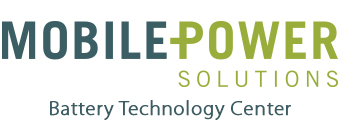REGULATORY TESTING & AGENCY APPROVALS
Mobile Power Solution’s (MPS) team is educated and current on relevant standards, laws, and testing requirements. MPS provides regulatory approvals as part of our battery development process, but also offers regulatory qualification for third party cells and batteries.

UN 38.3 Approval is required for shipping all production-level Lithium cells and batteries.
UN 38.3 Testing
The U.S. Department of Transportation regulates shipment of primary Lithium and secondary Lithium-ion cells and batteries. Lithium batteries are classified as a Class 9 Dangerous Good during transport, as they present the potential for fire hazard. UN 38.3 references the U.N. Manual of Tests and Criteria, Sub-section 38.3. UN 38.3 is a mandatory certification for Lithium-ion cell and battery shipments via land, air, rail, and sea. UN 38.3 applies to batteries transported either on their own or installed in a device. UN 38.3 Tests include altitude simulation, thermal cycling, vibration, mechanical shock, external short-circuit, impact, overcharge and forced discharge.
For more information on our UN 38.3 test services and test facilities:

Lithium batteries power many subsystems on modern aircraft.
RTCA DO-227 and DO-311 Testing
The Federal Aviation Administration (FAA) requires certification to DO-227 for primary Lithium cells and batteries, and DO-311 for secondary Lithium-ion cells and batteries installed on aircraft. DO-227 is the Minimum Operational Performance Standards (MOPS) for Non-Rechargeable Lithium Batteries. D0-311 is the Minimum Operational Performance Standard (MOPS) for Rechargeable Lithium Batteries and Battery Systems. Compliance with RTCA DO-227 or DO-311 ensures cells and batteries perform their intended function safely in conditions encountered in aeronautical environments.
For more information on our RTCA DO-227 and DO-311 test services and test facilities:
TSO-C142 Testing
Similar to RTCA DO-227, Technical Standard Order (TSO) C142 (Revision B) prescribes the minimum performance standard that primary Lithium cells and batteries must meet to receive the applicable TSO marking. This TSO applies to Lithium cells and batteries intended to provide power for aircraft equipment including emergency and standby systems.
For more information on our TSO-C142 test services and test facilities:
IEC 62133 Testing
IEC 62133 is the international Standard for Portable Sealed Secondary Cells, and for Batteries made from these Cells for Use in Portable Applications. IEC 62133 specifies requirements and tests for the safe operation of portable sealed secondary Lithium-ion cells and batteries containing non-acid electrolyte, under their intended use and reasonable misuse conditions. IEC 62133 addresses various aspects of battery safety, including mechanical, electrical, and chemical safety.
For more information on our IEC 62133 test services and test facilities:

Most mobile medical devices have UL 2054 approvals for their Lithium batteries.
UL 2054 Testing
UL 2054 is the Standard for Household and Commercial Batteries, created and published by Underwriters Laboratories (UL). UL 2054 addresses portable primary and secondary batteries for use as power sources in household and commercial products. These batteries can consist of either a single cell or multi-cell batteries. UL 2054 intends to reduce the risk of injury to persons due to fire or explosion when batteries are used in a product, as well as reduce risk of injury when batteries are removed from a product for transportation, storage, and disposal.
For more information on our UL 2054 test services:


